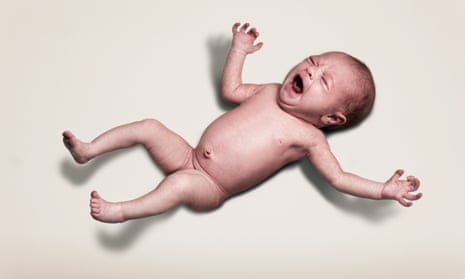Brooklyn-based author Rivka Galchen (American Innovations; Atmospheric Disturbances) was one of the New Yorker’s “20 under 40” writers to watch in 2010. On the front of her first nonfiction book, Little Labours, there’s a puma, representing Galchen’s baby daughter, whom she refers to as a “puma” throughout most of the book (“A puma moved into my apartment, a near mute force”). Galchen, who says she’d never been particularly interested in motherhood and babies, who was “repelled” by the thought of writing about them, reflects that once her child arrived “the world seemed ludicrously, suspiciously, adverbially, sodden with meaning”.
It soon becomes clear that this slim, elegant volume of essays couldn’t be filed away as mere maternal navel-gazing (You know the kind of thing: “I’m the first woman on earth to have a baby, so I’m going to write about it”). Little Labours is far odder, wittier, nimbler than that. For Galchen, it seems less about chronicling her fecundity than it is about maintaining a grip on her intellect, creativity and humour in her “newly overturned life”. As sleep deprived and discombobulated as any new first-time mother, Galchen’s thoughts are “unprecedentedly interrupted”. She tries to read “something especially short”, with “the baby bound and burritoed in a thin blanket next to me”. She observes: “The puma made me again more like a writer (or at least a certain kind of writer) precisely as she was making me into someone who was, enduringly, not writing.”
Chapters of varying lengths, with intriguing titles (What drug is a baby?), range in style from pithy observations to more penetrating narratives that sometimes have the pulse of short stories. Galchen muses on the depiction of babies in literature (“Literature has more dogs than babies, and more abortions”), art, culture and wider society, homing in on everything and everyone from Sei Shonagon, JG Ballard and Mary Shelley to Godzilla, Rumpelstiltskin and Guantánamo Bay.

Galchen looks at “mother writers”, how the female artistic contribution is all too often stalled and diminished (the “little” of the title). She wryly ponders the idea of writing about “women writers” (“What was I going to say? That this or that writer was not Virginia Woolf, but was similarly female?”). Nor is Galchen afraid to take the dark route through the subject matter. “It’s true what they say,” she writes, “that a baby gives you a reason to live. But, also, a baby is a reason that it’s not permissible to die. There are days when this does not feel good.” At another point, she observes that babies are “supernatural” in their own way, “certain, eventually, to leave you”.
At times, the reader could be forgiven for wondering whether Galchen is overthinking things just a tad – or at least, really needs to catch up on that sleep. However, at all times, she is self-aware and funny, happy to acknowledge and lampoon her “bohemian-Brooklyn-bourgeoisie” privilege.
Ultimately, and almost despite itself, Little Labours turns out to be a love story between a woman and a daughter variously referred to as “old world monkey”, “wounded deer” and “puppetmaster”. While it’s hardly original for a mother to love her child, Galchen succeeds in giving her transformative experiences an inventive twist. What emerges is a stimulating read, a curio, for any woman, mother or not, interested in a unique slant on new parenthood.

Comments (…)
Sign in or create your Guardian account to join the discussion